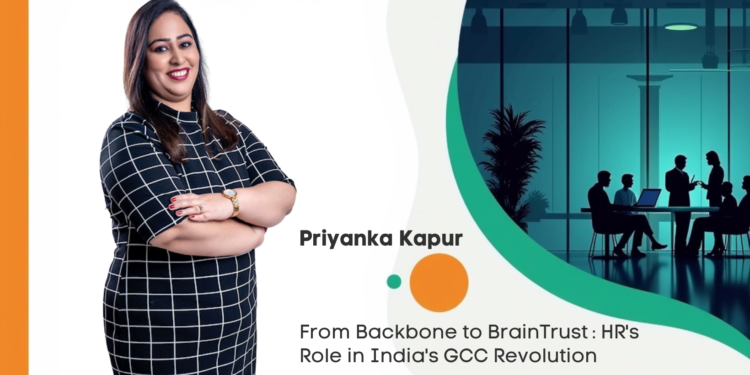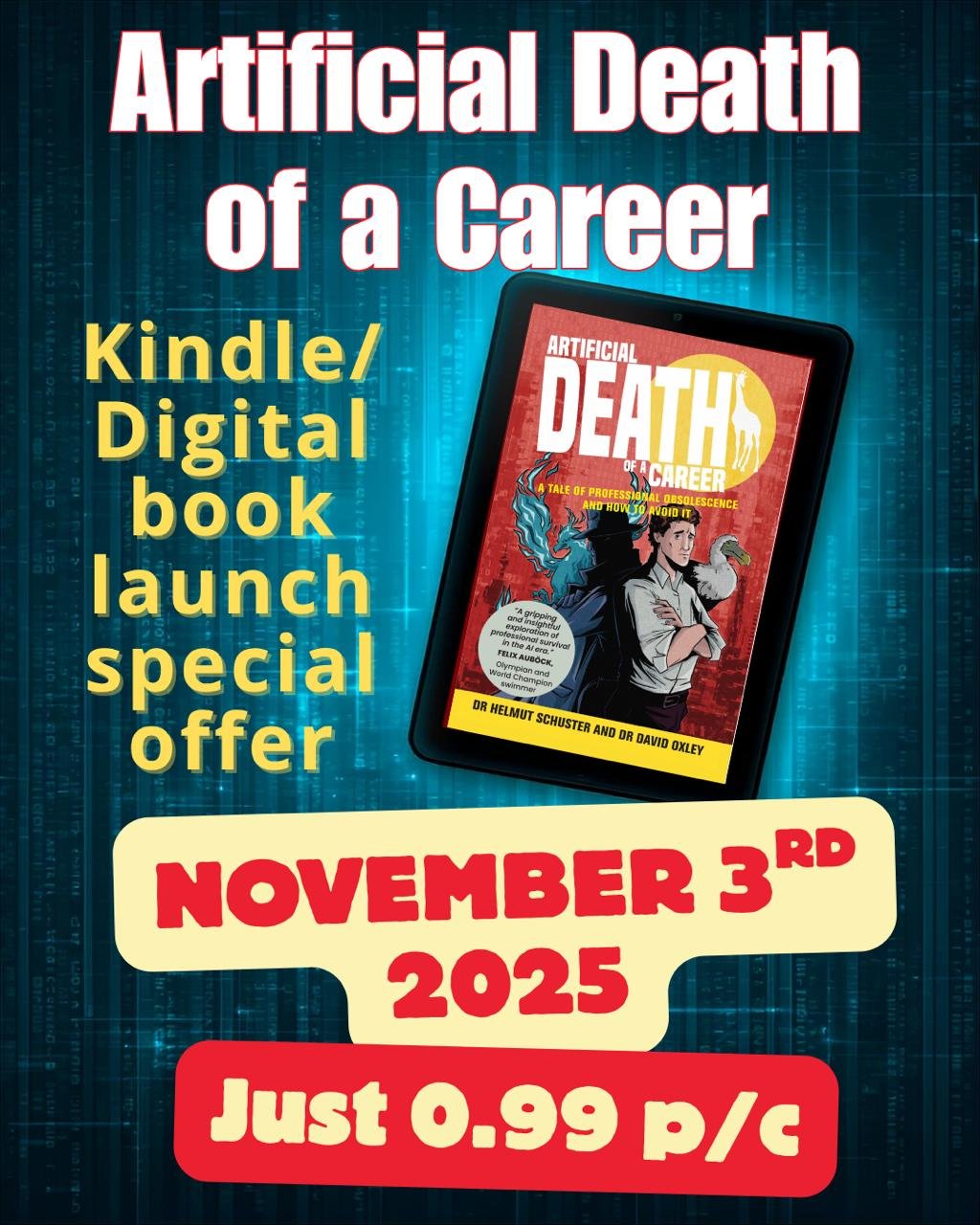Over the past two decades, India has emerged as the global epicenter for Global Capability Centre’s (GCCs) — not just as cost-effective extensions of multinational enterprises, but as innovation powerhouses driving enterprise-wide transformation. As of 2024, India is home to more than 1,580 GCCs, employing 1.66 million+ professionals, contributing nearly $46 billion annually to the economy. And at the heart of this evolution is HR — no longer a support function, but a strategic architect of change.
In the current landscape, strategic HR leaders in GCCs are not only talent enablers but business partners, culture architects, and transformation drivers. As GCCs pivot toward higher-value functions like AI/ML, cybersecurity, product development, digital finance, and ESG reporting, HR is being called upon to reimagine the future of work, build global leadership pipelines, and infuse purpose, inclusion, and agility into organizational DNA.
The Rise of GCCs in India: A Snapshot
India’s GCC ecosystem has witnessed explosive growth. According to NASSCOM and Zinnov, the country hosts:
- 1,580+ active GCCs (2024), projected to reach 1,900+ by 2026
- Over 1.66 million employees, with hiring projected to grow at 11–13% YoY
- GCCs contribute ~45% of global digital engineering and technology transformation mandates
- India’s GCCs are increasingly taking end-to-end ownership of global products and services, including IP creation
Key sectors leading the GCC wave include BFSI, healthcare, retail, automotive, technology, and pharmaceuticals. Cities like Bengaluru, Hyderabad, Pune, Chennai, and NCR have become global GCC hubs due to their robust talent pool, cost advantages, and scalable infrastructure.
The Strategic HR Shift: From Operations to Transformation
As GCCs take on more complex, high-impact roles, the expectations from HR have fundamentally shifted. The traditional HR playbook — hiring, payroll, and compliance — has made way for strategic imperatives such as:
- Building future-ready leadership pipelines
- Driving digital talent transformation and upskilling
- Embedding a coaching and performance culture
- Fostering diversity, equity, and inclusion (DEI)
- Architecting agile, scalable organizations that can pivot with business demands
According to an EY 2023 report, 72% of HR leaders in GCCs now participate directly in business planning, compared to 48% five years ago. The role of HR is now deeply embedded in enterprise strategy, risk mitigation, innovation, and workforce transformation.
Challenges on the Path to Transformation
Despite their meteoric rise, GCCs and their HR leaders face complex challenges that demand strategic thinking:
1. The Talent Crunch in Digital & Leadership Roles
- India faces a projected shortfall of ~3 million digitally skilled professionals by 2026 (NASSCOM-Zinnov)
- Competition among GCCs for niche roles (AI/ML, cloud, cybersecurity, data science) has intensified
- Retaining high-potential talent amidst aggressive startup and Big Tech hiring is a growing concern
2. Cultural Integration & Purpose Alignment
- Many GCCs struggle to maintain cultural continuity between global HQ values and India operations
- Purpose-led employee value propositions (EVPs) are critical, especially for Gen Z and millennial workforce
3. Scaling DEI Beyond Compliance
- While most GCCs have DEI policies, embedding inclusive behaviours and leadership accountability is still a work in progress
- Less than 20% of GCC leadership roles are held by women, though efforts are accelerating
4. Fragmented Learning Ecosystems
- Despite a growing focus on skilling, only 30–40% of learning investments are effectively utilized without a unified digital ecosystem or measurable ROI frameworks
5. Employee Experience in a Hybrid Era
- Remote and hybrid work models have created experience fragmentation, requiring HR to rethink onboarding, collaboration, engagement, and retention practices
Strategic HR in Action: Leading the GCC Evolution
Here’s how visionary HR leaders are tackling these challenges and reshaping the GCC narrative:
A. Workforce Strategy & Talent Architecture
Strategic HR in GCCs is now deeply involved in workforce planning, job role design, and talent architecture aligned to business growth. This includes:
- Creating integrated competency models and career path frameworks
- Leveraging talent heatmaps and predictive attrition analytics
- Designing succession and HiPo programs to ensure leadership continuity
In a recent Deloitte study, organizations with strong talent strategy alignment outperform peers by 2.2x in financial metrics.
B. Learning, Coaching & Capability Centers
With GCCs leading enterprise innovation, HR has launched Learning & Coaching CoEs that deliver:
- Blended learning journeys — combining digital, experiential, and social learning
- Action learning projects (ALPs) linked to business outcomes
- Leadership development programs aligned with future skills like systems thinking, emotional intelligence, and strategic foresight
Organizations that embed coaching cultures report 30% higher employee engagement and 25% improvement in leadership effectiveness (ICF Global Report, 2023).
C. Diversity, Equity & Inclusion (DEI)
GCC HR teams are scaling DEI beyond tokenism by:
- Designing Women in Leadership programs with measurable career outcomes
- Embedding bias mitigation techniques in talent selection and performance reviews
- Creating inclusive manager enablement programs to drive behavioural change
Companies leading on DEI have shown up to 21% higher profitability, according to McKinsey’s 2023 Diversity Report.
D. Digital HR, Analytics & Employee Listening
Modern GCCs use HR tech to drive:
- People analytics dashboards for real-time insights on retention, engagement, and hiring
- Pulse surveys and sentiment analysis tools for continuous feedback
- AI-based recruitment engines to enhance candidate experience and reduce hiring TAT by 40–50%
As per PwC’s Workforce of the Future Report, 78% of high-performing GCCs have invested in HR analytics tools in the past two years.
E. Organizational Design & Agile Performance
GCC HR leaders are also reshaping structures to enhance agility:
- Moving away from hierarchical org charts to networked teams and project-based squads
- Redesigning performance management into real-time coaching, OKRs, and career conversations
- Encouraging cross-functional rotations and talent mobility systems to break silos and accelerate growth
Case-in-Point: HR as a Transformation Partner
A global tech-enabled services GCC in Pune reimagined its HR model by:
- Establishing a CoE for Leadership & Coaching to upskill over 1,000+ managers across India and APAC
- Launching a Women in Tech program that led to a 35% increase in female middle management hires in 18 months
- Using employee listening tools and predictive analytics to reduce voluntary attrition by 22% YoY
- Winning multiple accolades including CLO Team of the Year and being recognized as a DEI Champion across the industry
This is not an isolated success — it represents the growing trend of HR-led transformation in GCCs.
The Future: HR as a Growth Engine for GCCs
As GCCs gear up for the next wave of enterprise value creation, the role of HR will only become more strategic and indispensable. We’ll see:
- Hyper-personalized career growth models leveraging AI and predictive career pathing
- Greater focus on sustainable leadership development rooted in well-being, EQ, and purpose
- Rise of gig-based internal talent marketplaces for cross-functional agility
- Increased accountability of HR in P&L-driven decision-making and digital business models
Point in Focus:
India’s GCC landscape is not just expanding — it’s reinventing the global business model, and HR is leading that reinvention. From driving talent innovation and culture building to redefining leadership and inclusion, HR professionals today are shaping outcomes far beyond their function. As challenges grow more complex and opportunities more global, strategic HR is no longer optional — it is the differentiator between growth and stagnation.
India’s HR leaders have the opportunity — and responsibility — to craft a new global narrative: one where talent, transformation, and trust converge to power the organizations of tomorrow.
Read Also : HR Is Not a Support Function—It’s the CEO’s Most Powerful Growth Engine
The Fine Balance: Navigating Work, Life, and Mental Wellbeing
From Gatekeeping to Gateway Building: Transforming How Organisations Create Access
Leadership In Talent Management: A Powerful Driver for Economic Growth











